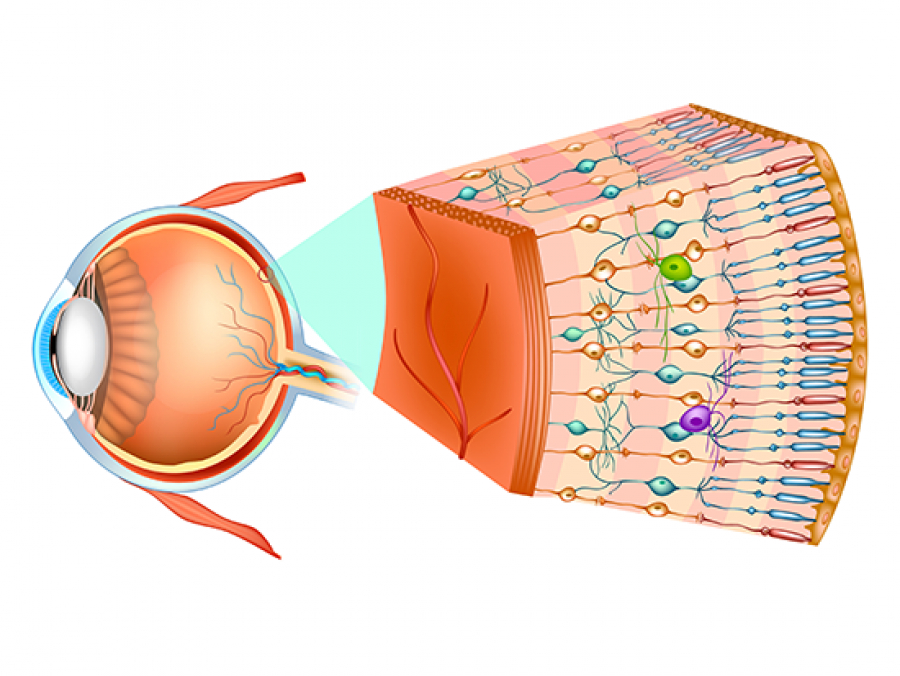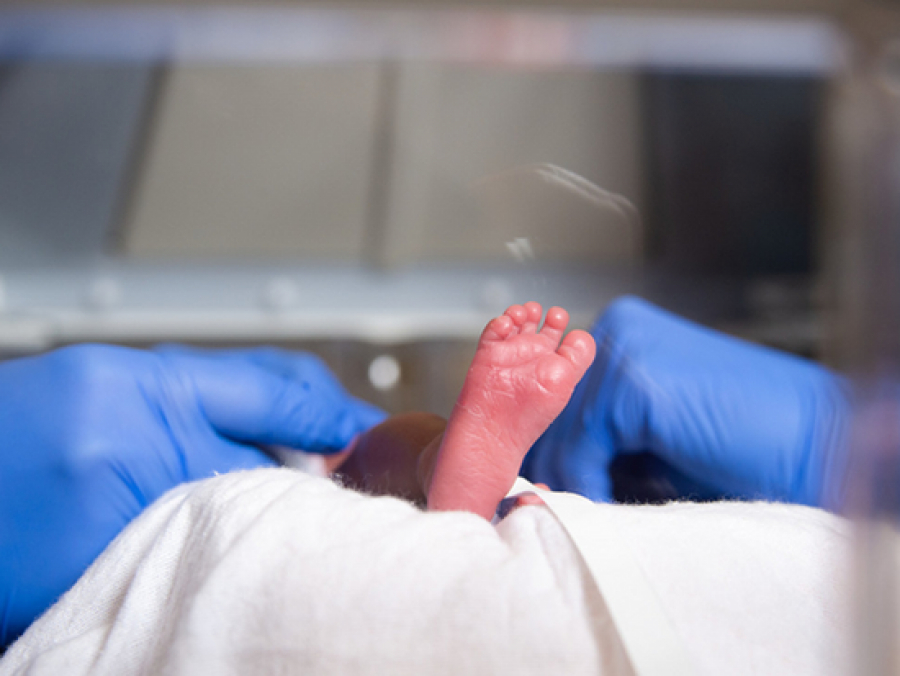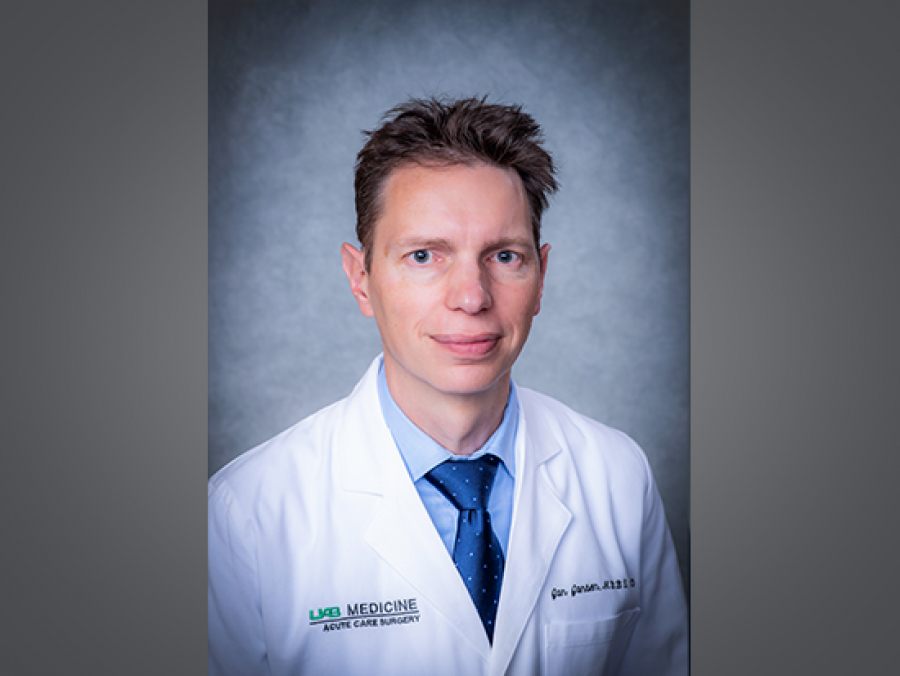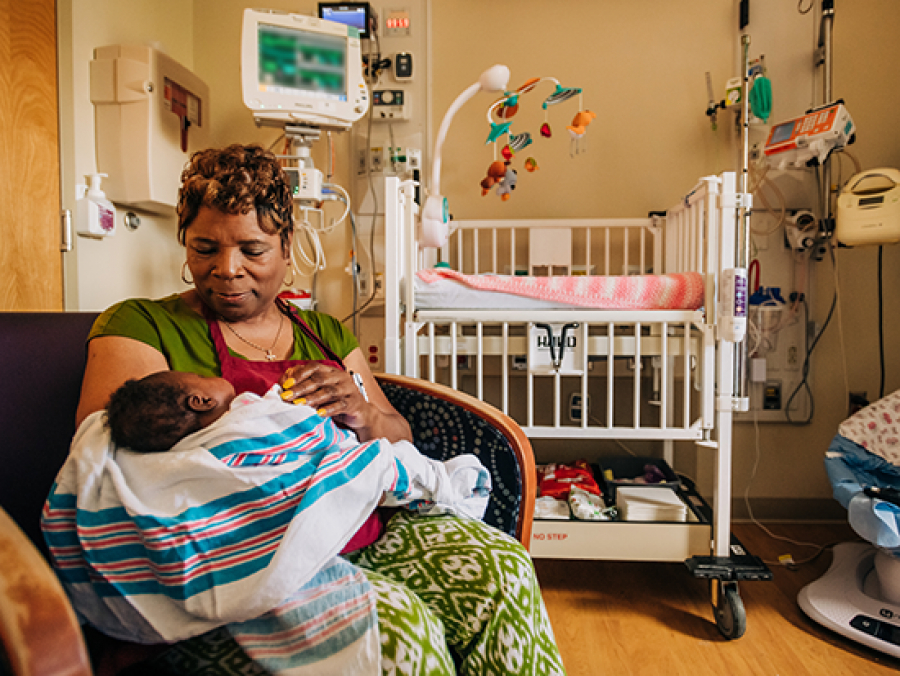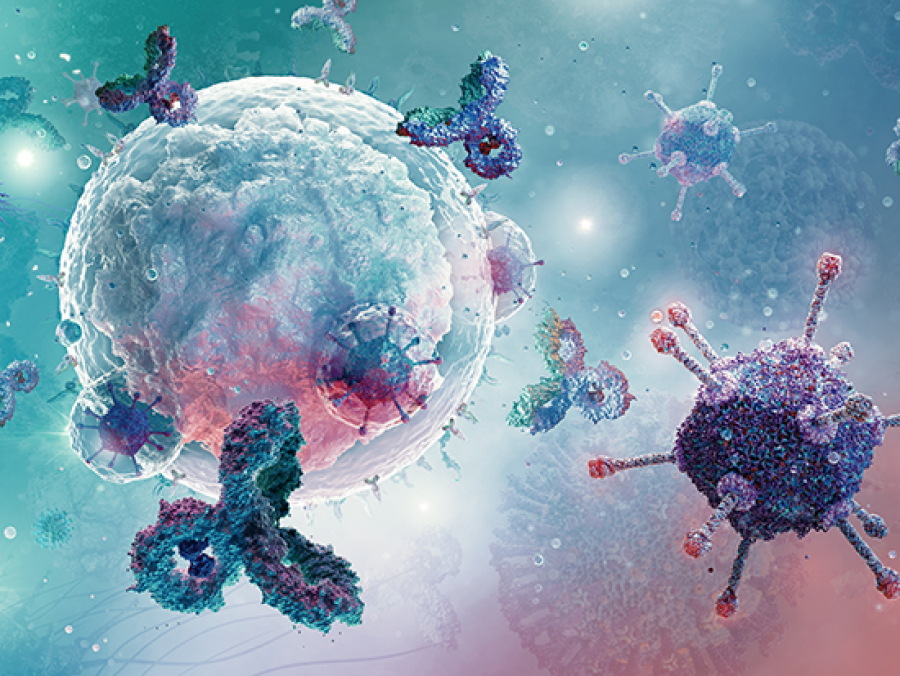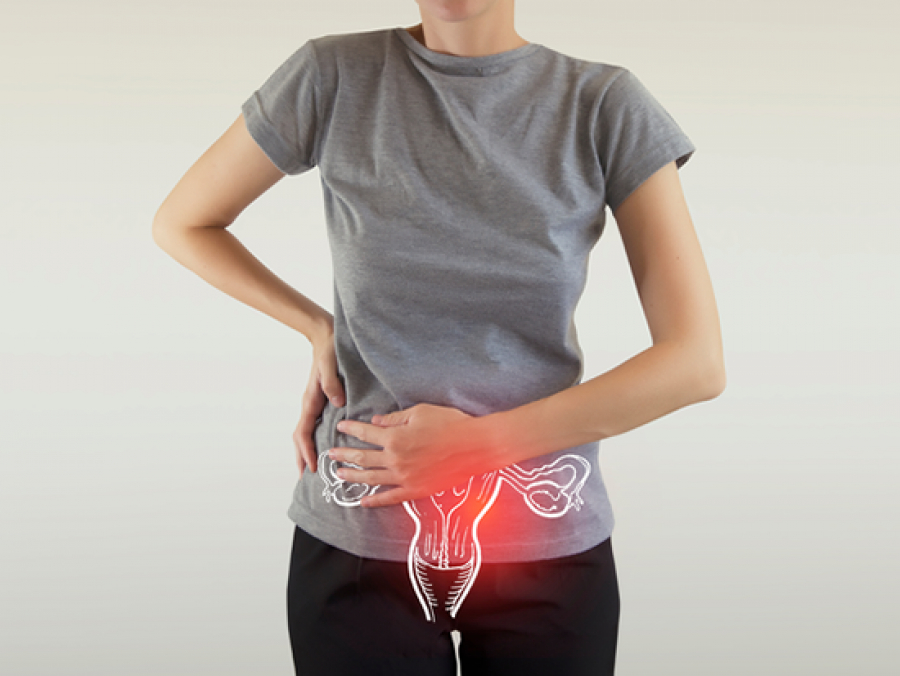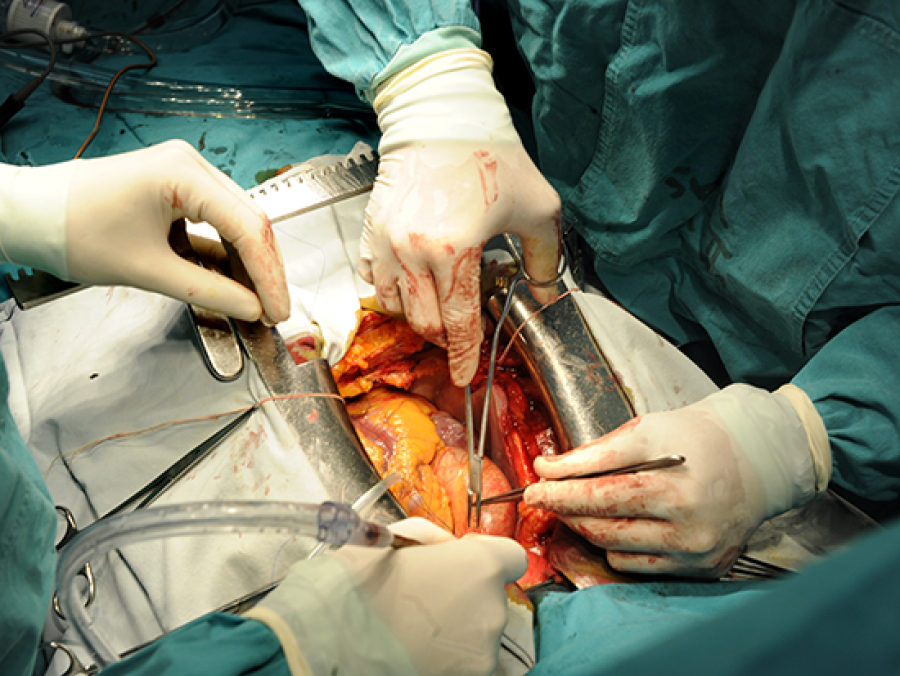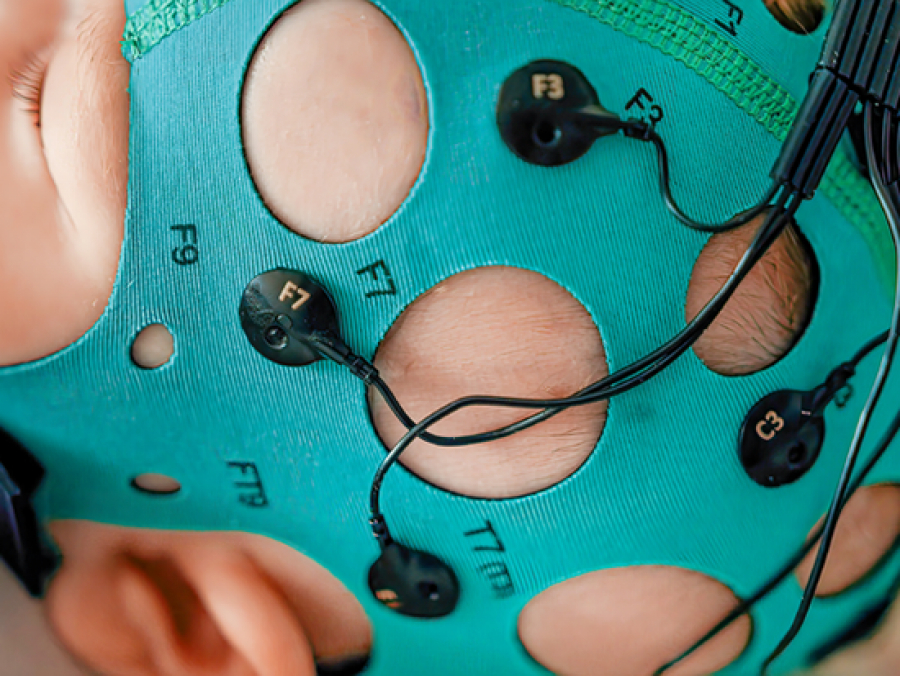Latest News
The model may provide novel insights into RP59 disease mechanism that will guide future testing of therapeutic interventions.
Maintain good dental health this Halloween by indulging that night, controlling candy intake after the binge, eating more chocolates than sticky, sour candy and brushing teeth twice daily.
Researchers have identified a gut-lung axis driven by intestinal antimicrobial peptide expression and mediated by the intestinal microbiota that is linked to lung injury in newborns.
Mullins has been CFO and associate vice president of Financial Affairs since 2016.
Project TransTeam Evolution strives to improve outcomes for young children with high-intensity needs and their families through evidence-based practices and advance equity for children from diverse cultural, structural and socioeconomic backgrounds.
UAB physicians urge people to get flu shots early in the season.
Dedicating a specific day and time, cooking in batches for convenience, doing meal prep in advance and using smart cooking tools like slow cookers and sheet pans can help save time, money and maintain a healthy diet.
UAB researchers say this study underscores the significance of addressing food insecurity among college students, not only for its direct impact on BMI but also for its indirect effects on diet habits and psychological well-being.
The O’Neal Comprehensive Cancer Center at UAB is recruiting Alabama women who have never had breast cancer for the study, to test a personalized approach to breast cancer screening.
The world’s first clinical trial of Resuscitative Endovascular Balloon Occlusion of the Aorta found that patients treated with REBOA were more likely to die than those who did not undergo REBOA.
A materials engineering Ph.D. student was awarded a scholarship from the Society of Plastic Engineers to help fund research to better the environment.
First-time freshman, transfer and online students who apply to UAB during Oct. 16-20 will have their application fee waived. No code or additional step is necessary.
The Bridge to Business Program stands as a testament to UAB’s commitment to fostering educational success and ensuring a seamless academic transition for aspiring business professionals.
Cong’s research indicates the increased vulnerability of older adults to climate change impacts while also highlighting their resilience capacity in the face of disasters, offering valuable insights for policy development and disaster preparedness.
Analysis of a survey of 18,041 people in rural KwaZulu-Natal revealed a discrepancy between the ability of the South African health system to respond to the health needs of people with communicable diseases and the health needs of people with non-communicable diseases.
UAB diabetes expert serves up tailgating hacks to make football season fun and diabetes-friendly.
The Blazer Bridge Fund is intended to identify and assist in the development of promising ideas, discoveries, innovations and/or technologies from UAB faculty and staff that have commercial potential.
Physicians in the O’Neal Comprehensive Cancer Center at UAB are advancing the field of thyroid care with cutting-edge, patient-specific procedures and collaborative research investigations.
UAB researchers conducted a study in end-stage heart failure patients with cardiogenic shock that revealed that B-type natriuretic peptide levels were elevated in end-stage heart failure but did not predict clinical outcomes.
UAB ranked No. 142 out of 435 measured schools in 2023, serving as a testament to the university’s continued growth and national exposure as a competitive and attractive university.
Human bodies are made to move, says UAB Arts in Medicine artist-in-residence Melissa Turnage, and “magical” energy can happen in the brain. Here are her tips for adding dance to your day.
The UAB Neonatal Helping Hands program provides volunteers the opportunity to hold, rock, talk, sing and read to infants in the RNICU and CCN. The program, which was paused in 2020 due to COVID, has relaunched and is accepting volunteer applications.
Lung-resident memory B cells produced during influenza are long-living immune cells that migrate to the lungs from draining lymph nodes and lie in wait as early responders that can quickly react to future infections. They are key sentinels against subsequent viral variants.
Ovarian cancer is known as the “silent killer” due to the difficulty in early detection because most women do not have any early symptoms.
The modified mRNA — delivered after experimental heart attacks — transiently allows heart muscle cells to proliferate, leading to reduced infarct size and improved heart performance compared to untreated animals.
While preventive treatment with vigabatrin delayed the onset and prevalence of infantile spasms in TSC infants, it had no impact on focal seizures, drug-resistant epilepsy, or improvement of cognitive and behavioral scores at 24 months.
The study’s findings provide valuable insights into the role of diet composition in Type 2 diabetes management.
Two real estate properties will build upon UAB’s already expansive over 100-block campus.
There is no specific reason for craving foods, but the urge is preventable and treatable as substituting with healthier options is the best way to manage cravings.
These results add an additional, mechanistic aspect to further explain how the decades-old blood pressure medication verapamil can preserve beta cell function in Type 1 diabetes patients by affecting the hormone insulin-like growth factor 1.
